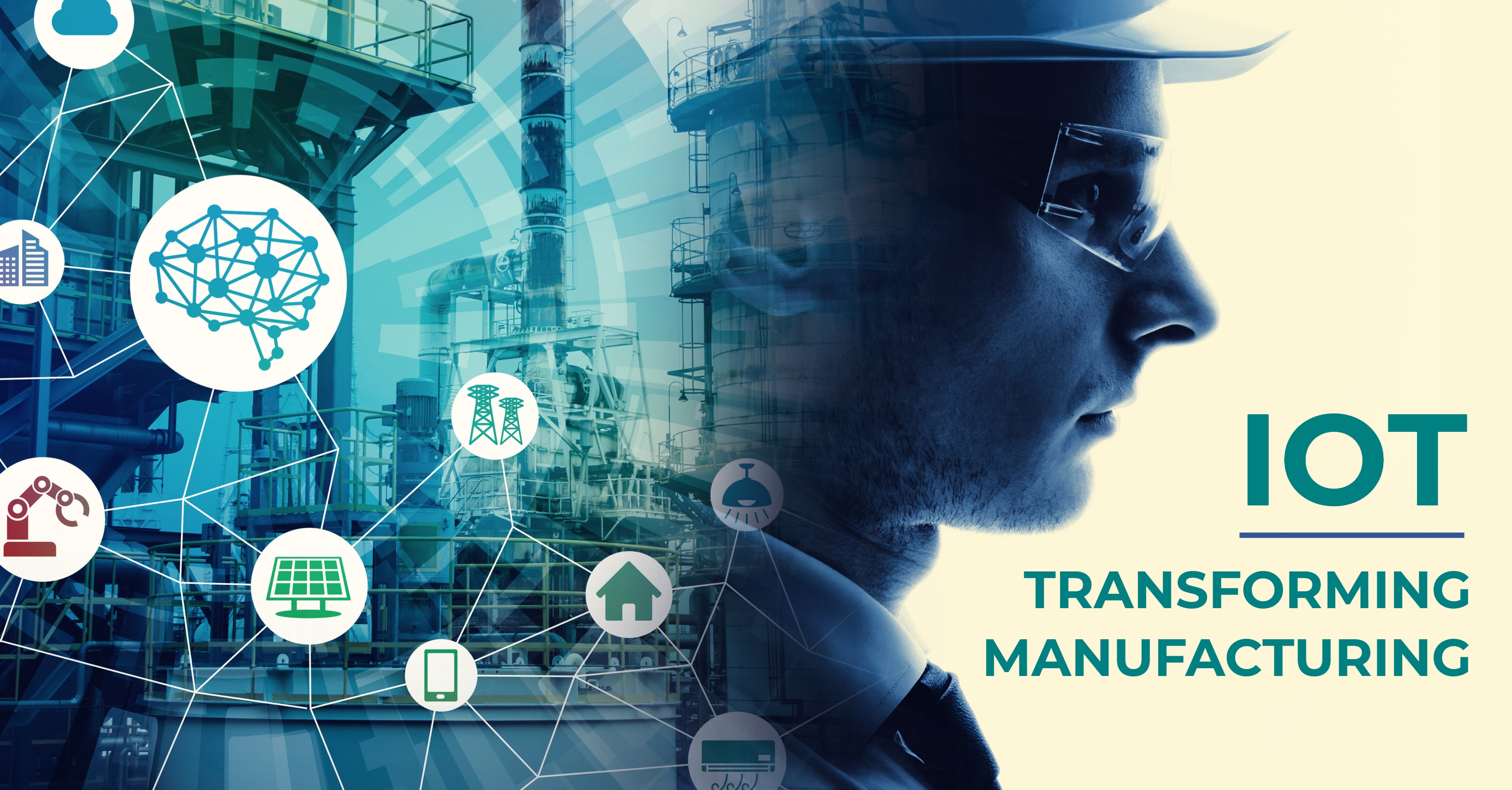5 Internet of Things Trends
The Internet of Things (IoT) has become far more than a buzzword; it’s become a force in several aspects of our lives, especially in the manufacturing industry. IoT is all about connectivity, enabling objects, machines and devices to transfer data over a network without use of human intermediaries. In the future, it’s wholly possible that nearly every manufactured object—either infrastructure or consumable—will be embedded with sensors that allow businesses to track performance and lean out operations that fail to add value to the manufacturing process or buyer’s journey.
Enterprise resource planning (ERP) software is making it feasible for manufacturers of all sizes to become IoT enterprises. Epicor ERP transforms the big data generated throughout your business into digestible, actionable insights. But what exactly are the IoT devices and functions transforming manufacturing? Check out our IoT trends infographic and read the rest of this post to learn how to create a smarter, more connected enterprise.

Top Trends in IoT
1. M2M Automation
Smart sensors can be embedded in nearly every device and manufactured product today, enabling communication between devices. IoT systems will be able to use these sensors to communicate and automate decisions, such as demand and sales forecasting, materials procurement, and distribution without human interaction.
Imagine this scenario: you supply products on the shelves of a large box retailer. When buyers carry a smart device, sensors built into shelving will attach the IP address from that device to the product’s unique identifier. It will embed an opportunity. If opportunity numbers fail to match sales forecasts, executives will be able to use BI and other software tools to specifically identify the issue.
The only way to truly capitalize on M2M automation is to integrate this data with enterprise software. With ERP communicating with your products and machines, users can closely monitor manufacturing performance and capture insights in one solution.
2. Security and Privacy
Authentication is critical across all areas of the IoT, whether it’s network, cloud or software applications. Contrary to popular belief, cloud networks are less prone to data breaches than on-premises data exchanges. Security for these networks is likely to evolve as more and more businesses make investments in information assurance (IA) services. The fact of the matter is that awareness and security process is paramount to IA; as this trend becomes engrained in corporate culture many of the issues businesses visualize today will be minimized.
3. Product Design
Consumers are demanding easier access to products and services. Technology is evolving to better acknowledge this desire for greater access to other objects, networks and people. We mostly associate the idea of applications with our smart devices, but sensors can be embedded into nearly everything we use. These sensors enable manufacturers to see how products are used and optimize product design to meet consumer needs.
4. IoT Data Broker
Gartner claims that 30 percent of enterprises will only be able to access broad-based big data from brokerages. Data brokers are big business. These companies can collect consumer personal information from a range of sources and resell or share the information for a variety of reasons to businesses.
This personal information can be linked to one or several IP addresses from the smart gadgets consumers use from day to day. From there, businesses will be able to attain these consumer attributes and align them with similar insights to form profitable distribution channels, segments and micro-markets. But given consumers’ growing concerns over how their data is being used, manufacturers will have to figure out how to ethically capitalize on customer insights without becoming untrustworthy.
5. IoT Supply Chain Analytics
The combined powers of IoT and ERP offer unparalleled visibility into the supply chain. Sensors and devices ensure users know the location of your goods and supplies at all times. Sophisticated ERP solutions such as Epicor take advantage of IoT technology to analyze and share data throughout your enterprise. This enables your company to collaboratively make smarter decisions on everything from stocking to quality control. Epicor can process the immense data collected from your machines, devices and sensors to monitor performance, make accurate predictions and spot risks—all in the name of strengthening your enterprise.
Wrap Up
Manufacturers will live and die in the next few years based solely on how they choose to adopt IoT into their processes. The most significant usage of IoT could be to lean out invaluable processes and increase efficiencies in production and customer service while streamlining valuable processes. The proper use of IoT technology could also help businesses improve security and loss prevention. But manufacturers must take several factors into consideration before going all-in on IoT solutions:
- How can businesses plug and play big data into current enterprise software?
- How should they interpret this big data?
- Where will enterprise software fit in to all of this?
Don’t tackle these questions alone. Datix is a certified Epicor partner that specializes in manufacturing and distribution solutions. As a one-stop shop for ERP, CRM, eCommerce and more, we assist businesses with data modeling and innovative strategies every day. Get in touch with us today to build your factory of the future!
{{cta(‘770c1544-d87d-4acb-9fc4-7a25e1385094′,’justifycenter’)}}


